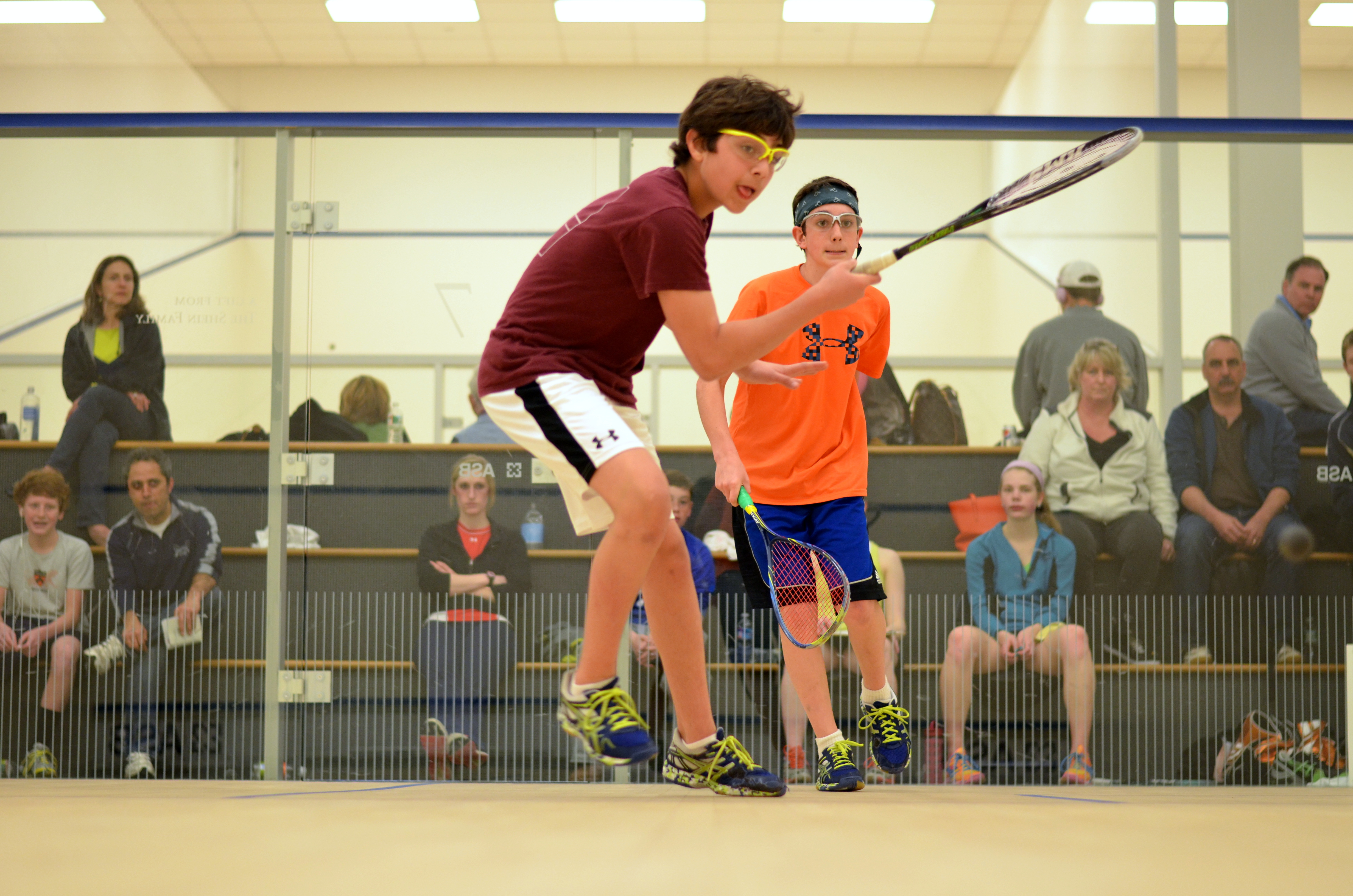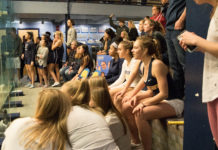By Damon Leedale-Brown, Sports Scientist & Conditioning Specialist
Whether a parent of a budding young athlete or a coach to a player you believe has the promise to be the next young squash star, it would be easy to think that the earlier you start them on a structured program of development in the sport the more likely they are to be successful.
Indeed in the US there is an ever increasing focus on success in competitive sports at a young age often driven by parents themselves, which in turn has created added pressure for young athletes to train with more intensity and structure at increasingly earlier ages. The goal of getting kids into the ‘right’ college or possibly a college scholarship seems to be a great motivator to parents to encourage their children to specialize in one sport at a very young age.
 So is this approach of early specialization preparing a young athlete for future long-term success, or are we creating an environment which is placing the child at increased risk of injury and burnout?
So is this approach of early specialization preparing a young athlete for future long-term success, or are we creating an environment which is placing the child at increased risk of injury and burnout?
John DiFiori, President of the American Medical Society for Sports Medicine recently stated that few who specialize in one sport at a very young age make it to elite levels. “With the exception of select sports such as gymnastics in which elite competitors are very young, the odds of achieving success with early specialization are exceedingly poor. Recent studies indicate that early specialization is less likely to result in success than participation in several sports as a youth, and then specializing at older ages”.
Another major concern of following a model of intense specialized training at a very young age is the risk of serious overuse injury and burnout. Loyola University Medical Center recently presented findings from the largest clinical study of its kind on overuse injuries in young athletes. They found that young athletes who train intensively in one sport have a significantly higher risk of stress fractures and other severe overuse injuries. They suggest caution about intense specialization in one sport before and during adolescence, and recommended that young athletes should not spend more hours per week in organized sports than their age.
Sports Medicine Specialists are developing labels to describe the increasing number of repetitive-use injuries they see in young athletes – baseball shoulder, runner’s knee etc. Amy Valasek, a pediatric sports medicine expert at Johns Hopkins Children’s Center says she sees an average of 100 children per month for sports injuries and at least half are caused by repetitive use. She believes the trend is fueled by a number of factors including more children specializing in one sport at a younger age, rigorous training regimens, resuming practice before an injury has healed completely, and improper injury prevention.
“Their still growing bones make young children and preteens more vulnerable to damage from overuse or repeated movements. The typical patient is one who plays multiple seasons of one sport rather than a variety of athletic activities. This is why experts advise that it’s essential to avoid early specialization before age 14. It is really important that young children have whole body conditioning and engage in a variety of athletic activities rather than one sport”.
Another concern with young athletes being placed into organized and structured sports and being encouraged to specialize at an early age is the lack of unorganized free play time which was such an important part of my development in sport as a child, and I am sure many parents reading this article can say the same. As a coach I firmly believe that free play time is a critical part of a child’s physical, mental and social development as a young athlete, and we should not be so quick to take this away. Indeed the research at Loyola University found that in general the injured young athletes spent more time in organized sport (typically with a single sport focus) and spent much less time in free play and unorganized sports than the uninjured athletes.
So what are the key recommendations we as parents and coaches can take away from all this great research and expert advice to help younger children develop into well rounded young athletes, increasing their chances of success in sport at older ages and reducing their risk of injuries:
- Do not spend more hours per week in organized sports than your age
- Do not spend twice as much time in organized sports as you do in unorganized sport and free play
- Do not specialize in one sport before late adolescence
- Do not play sports competitively year round but take a break from competitions for at least 1-3 months each year.
- Take at least one day off per week from training in sports
For parents out there I would encourage you to make time to do different sports and activities with your children in an unstructured environment, and provide opportunities for your children to have lots of free play time with friends across many sports and games. Be careful of pushing young kids into a heavily structured coaching environment at too early an age which may in fact hinder their development of movement and game skills, result in overuse injuries and possible mental and physical burnout, and limit their chances of future success in sport.





